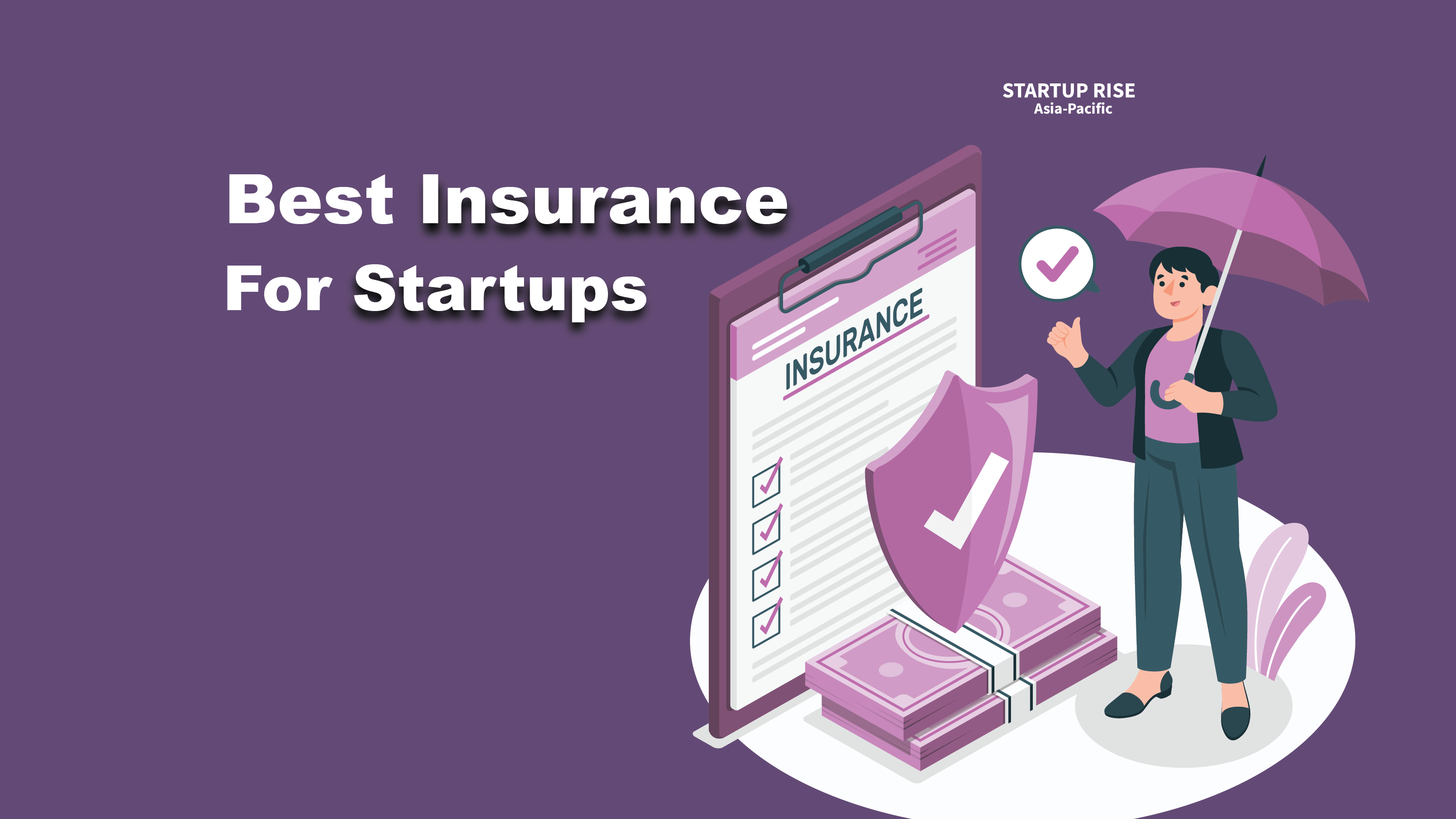Business Insurance for Startups: Protecting Your New Venture
Starting a business can be both an exciting and daunting experience. As a startup entrepreneur, you may already be focused on building your brand, developing products, and attracting customers. However, one of the most critical aspects of starting a new venture often gets overlooked—business insurance. Ensuring your startup is protected against risks can save you from unexpected financial setbacks and provide peace of mind as your company grows.
In this article, we will explore why business insurance for startups is essential, the types of insurance you should consider, and how to select the right coverage for your business. Whether you are a tech startup, a retail business, or a service-based company, this guide will help you understand your insurance needs.

Why Does Your Startup Need Business Insurance?
Starting a business means assuming risks. Whether it’s an accidental injury on your property, a lawsuit from a disgruntled customer, or damage to your equipment, unexpected events can disrupt your operations and cost you significantly. Business insurance for startups acts as a safety net, offering financial protection against these risks. Here’s why it’s so important:
1. Mitigating Financial Risk
No business is immune to accidents or mishaps. Without the right insurance coverage, your startup could face significant out-of-pocket expenses in the event of an incident. For instance, if a customer gets injured on your premises or your office equipment breaks down, you could be left footing the bill. Business insurance ensures that these unexpected costs don’t sink your business.
2. Protecting Your Assets
As a startup, your company’s assets, whether physical (like office equipment) or intangible (like intellectual property), are valuable. Insuring these assets prevents them from being jeopardized in case of loss or damage. For instance, in the case of a fire, theft, or data breach, having the right insurance can help you recover and continue your operations.
3. Building Credibility with Clients
Clients and customers are more likely to trust businesses that are adequately insured. Liability coverage can provide assurance that you are taking the necessary steps to protect your business and their interests. For example, having professional liability insurance demonstrates to clients that you are serious about delivering quality services and will cover any mistakes or oversights.
4. Compliance with Legal Requirements
In some cases, businesses are required to have specific types of insurance to operate legally. For example, many jurisdictions require employers to carry workers’ compensation insurance. Compliance with these regulations not only keeps you safe from legal issues but also helps protect your employees.

Types of Business Insurance for Startups
When choosing the right business insurance for startups, it’s crucial to understand the different types of coverage available. Here are some of the most common insurance options startups should consider:
1. General Liability Insurance
General liability insurance is one of the most basic and essential forms of business insurance. It protects your startup from claims related to bodily injury, property damage, and advertising injury. If someone is injured while on your premises or you accidentally damage their property, this insurance can cover the associated costs.
- Example: A customer trips and falls while visiting your store. General liability insurance would cover medical expenses and legal fees if the customer decides to sue.
2. Professional Liability Insurance
Also known as errors and omissions insurance, this type of coverage is especially important for service-based startups. It protects you against claims of negligence, mistakes, or inadequate work that leads to financial loss for your clients.
- Example: If you provide consulting services and your advice leads to a client losing money, professional liability insurance can help cover the legal costs of defending your business.
3. Workers’ Compensation Insurance
If you have employees, workers’ compensation insurance is typically required by law. This insurance covers medical expenses and lost wages if an employee gets injured on the job. Even if you don’t have full-time employees, this coverage is vital as it protects both you and your workers.
- Example: If one of your employees is injured while working in the office or on-site, this insurance will pay for their medical bills and provide them with a portion of their income while they recover.
4. Property Insurance
Property insurance protects your business’s physical assets, such as office buildings, equipment, and inventory. If your business is in a rented space, property insurance may also cover damage to the building itself.
- Example: If a fire damages your office equipment or inventory, property insurance will help replace these items, minimizing the financial impact on your startup.
5. Cyber Liability Insurance
As technology-based startups increasingly rely on digital platforms, cyber liability insurance has become an essential type of coverage. This insurance protects your business from cyber threats like data breaches, hacking, and other online security risks.
- Example: If your business experiences a data breach and sensitive customer information is exposed, cyber liability insurance can help cover the cost of notifying affected individuals and addressing the fallout.
6. Business Interruption Insurance
Unexpected events like natural disasters, fires, or pandemics can temporarily halt your business operations. Business interruption insurance helps you stay afloat during such periods by covering lost income and continuing to pay for expenses, even when you’re unable to operate.
- Example: If your office is damaged in a storm and you can’t operate for several weeks, business interruption insurance can help cover your operating costs during the downtime.
7. Product Liability Insurance
If your startup sells physical products, product liability insurance is a must-have. This insurance protects you if a product you sell causes harm or injury to a customer.
- Example: If a defective product injures a customer, product liability insurance can help cover medical costs, legal fees, and other damages.

How to Choose the Right Business Insurance for Your Startup
Choosing the right business insurance for startups can be overwhelming, especially if you are new to the process. Here are some steps to help you select the best coverage for your business:
1. Assess Your Business Risks
Start by identifying the risks your startup faces. Consider the nature of your business, the industry you operate in, and the potential liabilities. This will help you determine what types of insurance you need.
2. Research Your Industry’s Insurance Requirements
Different industries have different insurance requirements. For example, a healthcare startup may need malpractice insurance, while a construction startup may require worker’s compensation and general liability coverage. Make sure you understand the regulations in your industry and comply with them.
3. Get Multiple Quotes
Insurance rates can vary significantly, so it’s a good idea to get quotes from multiple providers. Compare the coverage options, policy limits, and premiums to find the best deal for your startup.
4. Consider Bundling Policies
Many insurers offer bundled policies that can help reduce your overall insurance costs. For example, you may be able to combine general liability and property insurance into a single package. Bundling can save you money while ensuring comprehensive coverage.
5. Review Your Insurance Regularly
As your business grows, your insurance needs will evolve. Regularly review your policies to ensure that your coverage keeps up with changes in your startup.
Common FAQs About Business Insurance for Startups
1. Is business insurance mandatory for startups?
While not all types of business insurance are required by law, some are essential, such as workers’ compensation insurance and general liability insurance. Depending on your industry and location, certain types of insurance may be mandatory.
2. How much does business insurance for startups cost?
The cost of business insurance for startups varies depending on factors such as your business type, size, location, and the types of coverage you need. On average, startups can expect to pay anywhere from $500 to $2,000 per year for basic coverage.
3. Can I get insurance for a startup with no employees?
Yes, you can still get business insurance even if you don’t have employees. Many types of coverage, such as general liability and professional liability insurance, are available for sole proprietors and businesses without employees.
4. How do I know which insurance policies are right for my startup?
Consider the risks specific to your business and consult with an insurance broker. They can help you assess your needs and recommend the right policies.
Conclusion
Business insurance for startups is an essential investment that protects your venture against a variety of risks. Whether you’re just getting started or you’ve been in business for a while, the right insurance coverage can help safeguard your assets, mitigate financial loss, and ensure the continuity of your operations. By assessing your business risks, researching insurance options, and consulting with experts, you can make informed decisions that provide the protection your startup needs.
For more information on how to protect your startup, visit StartUp Rise or check out additional resources like Clema RS.

